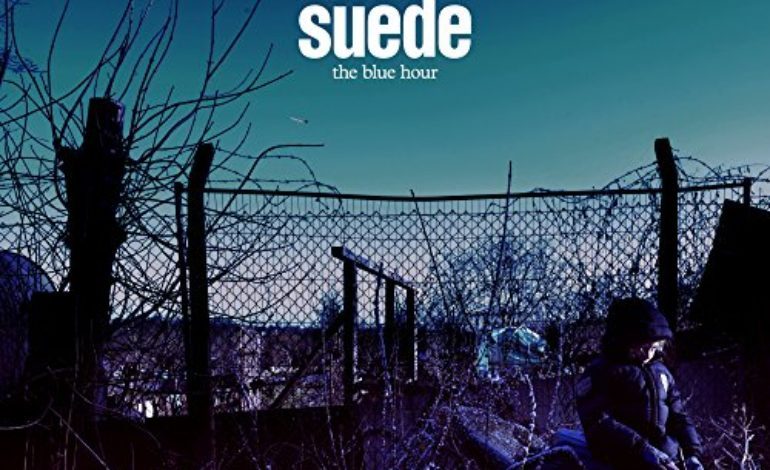

A darkly compelling listen
Suede–also known as The London Suede–one of the most popular and ubiquitous Britpop bands, have returned to the forefront with their new release The Blue Hour. The record stands in contrast to most mainstream music today, given its nearly wire-to-wire use of a dark, minor sound. The album is dense with compelling lyrical motifs and challenging, complex music, though that dark sound can become a bit redundant at times. It’s a strong effort and solid return to form for the British rockers.
“As One” immediately puts the album on a darkly intriguing trajectory with its hypnotic operatic vocals and gripping build-up of tension. Musically, it sounds like something out of the score of a horror or dark fantasy film, a trend that will continue in later tracks on The Blue Hour.
“Wastelands” is another standout track that also employs thoughtfully composed music that could pass as part of a film score. Its strong minor tonality in the verse makes it easy to envision the protagonist of our hypothetical movie wandering through wastelands, in search of something. Power chords and overdrive kick in on the chorus, moving away from the film score motif to a more traditional modern rock chorus sound. The breakdown is haunting, showcasing strong interplay between guitar and bass which is a nice callback to the song’s intro riff. Lyrically, the song is highly relatable, as it sees our narrator wanting to escape his problems by running away. Vocalist Brett Anderson sings in the chorus: “When the world is much too much / We’ll run to the wastelands.”
The band’s heavy emphasis on minor tonality makes their sound inherently different from most popular music, and one of their biggest strengths is the way that they’ll occasionally hint at a more uplifting, major sound for a beat or two, only to revert back to their preferred dissonant, minor sound, such as during the chorus of “Mistress.” These slight variations not only add texture to otherwise dark sounding songs, but it also feels like the band teasing its listeners.
“Beyond The Outskirts” is another song emphasizing the themes of space and escape. Much like “Wastelands,” which sees our narrator yearning to run from his problems, this tune sees him wishing to be somewhere else, outside of his small town dreams (“Beyond the outskirts, come with us / We’re small town dreaming / We’re birds on a wire”). The song’s bridge maintains The London Suede’s quintessentially dark sound but explores new territory with a fuzz-laden guitar riff that borders on punk and hardcore. Furthermore, the use of a chromatic walk down to transition back into the chorus makes it fit seamlessly.
“Chalk Circles” offers a sinister organ melody during the introduction, drawing more film score similarities. Something about this sound has an inherently fantasy-infused feel to it. The dark organ melody sounds like the song Ganondorf plays before the final boss battle in Zelda: Ocarina of Time, and the introduction of guitar and a pulsing drum beat halfway through transforms the song into something of a military march that might play during the advance of the Orcs in The Lord of the Rings or the Whitewalkers in Game of Thrones.
The Blue Hour’s seventh track, “Life is Golden,” is a legitimate departure from much of the album, swapping a dark and brooding sound for its comparatively soft and tender one. However, the chorus is booming and powerful, making for a nice contrast with the rest of the track.
In some songs, like “Roadkill,” the album’s decision to match dark music with dark lyrical content can be a bit heavy-handed and excessive. This track, in particular, feels rather one dimensional.
The album concludes on a strong note, however, in the form of single “Flytipping.” The nearly seven-minute track is an odyssey, building from its somber and withdrawn introduction to an epic crescendo. The song tackles materialism and the pointlessness of possession, explaining how “shiny things turn to rust” and eventually end in fly tipping, a British slang term for illegally dumping garbage.
The Blue Hour is a good record, offering something distinctly different from most mainstream indie rock music. It stumbles occasionally and its dark themes can become redundant, but it is a solid effort and a worthwhile listen for indie-rock fans, especially those with a soft spot for ‘90s Britpop.
